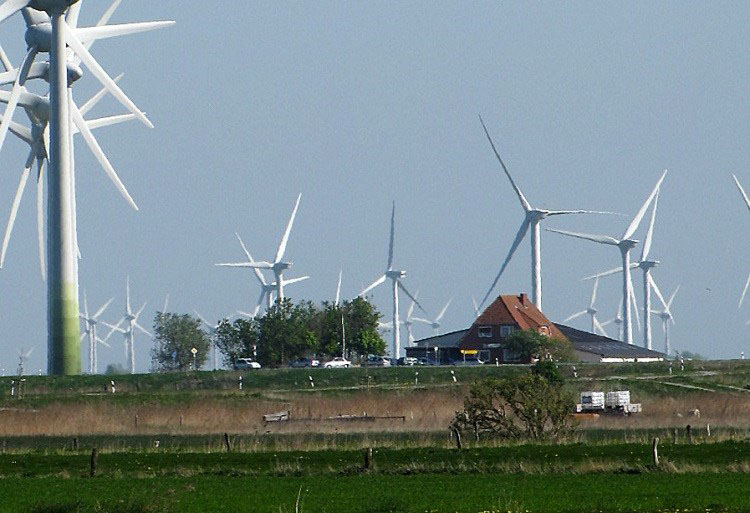
On August 14, there was a critical situation in the supply. Several German industrial companies temporarily stopped getting electricity. Due to the imminent nuclear phase-out, the risk of failures continues to rise.
Several German media, including the “Frankfurter Allgemeine Zeitung” (FAZ), reported on a delicate situation in the German power supply. On the evening of August 14, the production of renewable energy collapsed. Power generation could no longer keep up with power consumption. As was reported, the demand for electricity in Germany in the early evening of 14 August was around 50 gigawatts. However, the production of solar power, which was still over 30 gigawatts in the afternoon, collapsed to just 3 gigawatts. The network operators therefore had to call up all available reserves. However, the output of pumped storage power plants and coal-fired power plants at maximum load was not sufficient. There were also not enough electricity imports available.
That’s why the grid operators cut off the power supply (load shedding) of several energy-intensive industrial plants without warning before 8 pm. For example, the aluminium company Trimet in Essen remained without electricity. However, the grid was still not stabilized. In order to prevent a blackout, the grid operators disconnected other large consumers throughout Germany from electricity a short time later, this time with a warning time of a few minutes. The shutdown phase lasted over an hour. Then it was finally possible to stabilize the power grid.
One can be glad that the supply bottleneck occurred on a Saturday evening, writes the portal “Blackout News”. “On a normal weekday, when significantly more industrial companies are connected to the power grid, further stages of the security concept would probably have had to be triggered. Under certain circumstances, this would also have led to the separation of subnets, which also separate private households from the grid.”
The fast blackout was found less funny in industry. “Security of supply is a great asset for Germany as an industrial location,” Alexander Kronimus of the German Chemical Industry Association told the FAZ. “Even short-term supply interruptions can lead to high economic losses in industry.”
No anomalies were detectable in the Swiss extra-high-voltage grid on 14 August, as confirmed by the transmission system operator Swissgrid. Nevertheless, one cannot be reassured: “If there were a large-scale supply interruption in Germany, this could also have an impact on Switzerland,” says Swissgrid. Switzerland is connected to other countries via 41 power lines. A blackout in Germany, or in another European country, would therefore probably also let the lights go out here.
In Germany, there are indeed growing fears that critical situations in the electricity supply will become more frequent in the future. More and more power plants that supply reliable energy, such as coal-fired power plants, are being shut down while the demand for electricity is increasing as a result of electrification in transport and building services.
In July, Federal Economics Minister Peter Altmaier had to admit that electricity demand will increase by at least ten percent by 2030× instead of remaining the same as assumed. But the expansion of renewable energy, especially wind power, lags far behind the plans.
It could be particularly dicey if Germany takes the remaining six nuclear power plants off the grid as planned by the end of 2022. These contributed 12.5 percent to electricity generation in 2020. Specialists from the American analysis platform Bloomberg NEF have calculated that electricity production in Germany will be only three percent higher than consumption in 2023. In 2019, this surplus was still 26 percent. This significantly increases the risk of temporary power bottlenecks.
Read the full post (in German): Deutschlands Beinahe-Blackout | EIKE – Europäisches Institut für Klima & Energie (eike-klima-energie.eu)

1 thought on “Germany near-blackout”